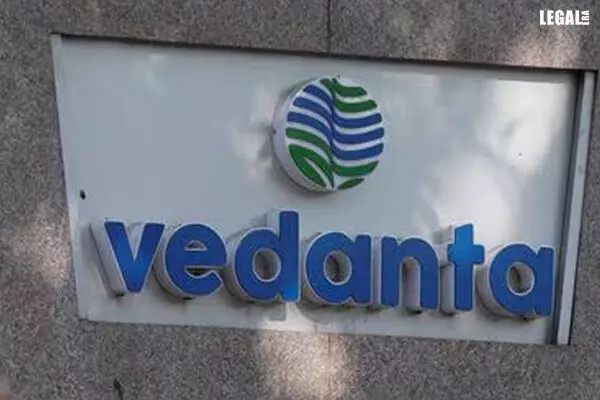- Home
- News
- Articles+
- Aerospace
- AI
- Agriculture
- Alternate Dispute Resolution
- Arbitration & Mediation
- Banking and Finance
- Bankruptcy
- Book Review
- Bribery & Corruption
- Commercial Litigation
- Competition Law
- Conference Reports
- Consumer Products
- Contract
- Corporate Governance
- Corporate Law
- Covid-19
- Cryptocurrency
- Cybersecurity
- Data Protection
- Defence
- Digital Economy
- E-commerce
- Employment Law
- Energy and Natural Resources
- Entertainment and Sports Law
- Environmental Law
- ESG
- FDI
- Food and Beverage
- Gaming
- Health Care
- IBC Diaries
- In Focus
- Inclusion & Diversity
- Insurance Law
- Intellectual Property
- International Law
- IP & Tech Era
- Know the Law
- Labour Laws
- Law & Policy and Regulation
- Litigation
- Litigation Funding
- Manufacturing
- Mergers & Acquisitions
- NFTs
- Privacy
- Private Equity
- Project Finance
- Real Estate
- Risk and Compliance
- Student Corner
- Take On Board
- Tax
- Technology Media and Telecom
- Tributes
- Viewpoint
- Zoom In
- Law Firms
- In-House
- Rankings
- E-Magazine
- Legal Era TV
- Events
- News
- Articles
- Aerospace
- AI
- Agriculture
- Alternate Dispute Resolution
- Arbitration & Mediation
- Banking and Finance
- Bankruptcy
- Book Review
- Bribery & Corruption
- Commercial Litigation
- Competition Law
- Conference Reports
- Consumer Products
- Contract
- Corporate Governance
- Corporate Law
- Covid-19
- Cryptocurrency
- Cybersecurity
- Data Protection
- Defence
- Digital Economy
- E-commerce
- Employment Law
- Energy and Natural Resources
- Entertainment and Sports Law
- Environmental Law
- ESG
- FDI
- Food and Beverage
- Gaming
- Health Care
- IBC Diaries
- In Focus
- Inclusion & Diversity
- Insurance Law
- Intellectual Property
- International Law
- IP & Tech Era
- Know the Law
- Labour Laws
- Law & Policy and Regulation
- Litigation
- Litigation Funding
- Manufacturing
- Mergers & Acquisitions
- NFTs
- Privacy
- Private Equity
- Project Finance
- Real Estate
- Risk and Compliance
- Student Corner
- Take On Board
- Tax
- Technology Media and Telecom
- Tributes
- Viewpoint
- Zoom In
- Law Firms
- In-House
- Rankings
- E-Magazine
- Legal Era TV
- Events
Supreme Court junks stay on SAT order rejecting SEBI’s direction against Cairn India

Supreme Court junks stay on SAT order rejecting SEBI’s direction against Cairn India
The Supreme Court has rejected the October 2023 order of the Securities Appellate Tribunal (SAT) that quashed the Securities and Exchange Board of India's (SEBI’s) order against Cairn India over alleged violation of buyback rules.
SEBI had penalized Cairn (now part of Anil Agarwal's Vedanta Ltd) for violating the rules, after which the company appealed citing unforeseen market conditions. (The appeal against the SAT decision will now be heard by the top court).
The tribunal had also set aside Rs.5.25 crore imposed on Cairn for allegedly falsely announcing the shares buyback on 14 January 2014.
The bench led by Justice Abhay S Oka issued a notice to Vedanta on SEBI's appeal against the 2023 SAT order, which also set aside a Rs.15 lakh each penalty that the market regulator imposed on P Elango, then CEO and a director of Cairn, and two directors - Aman Mehta and Neerja Sharma.
SEBI apprised the apex court that the appellate tribunal failed to note that Cairn did not comply with the rules. The announcement was misleading and designed to influence the investor’s decision, inducing them to trade in the company shares. This reflected in the increased trading volume.
The market regulator added that Cairn had a premium margin of 4 percent for the maximum buyback price. The company put orders for 14 lakh shares daily, but the entered quantities were very less. It stated, "The historical volumes in the scrip were not considered while deciding the offer and fixing the buyback target.”
The Cairn board approved a buyback of Rs.5,725 crore from the open market at Rs.335 each (from January to July 2014).
However, the open market buyback failed as the company bought back only 21.48 percent of shares and fell short of the 50 percent required under the SEBI rules. When the investors could not sell their shares to the company, Cairn sought an extension from SEBI, which turned down the plea.
The regulator observed that the company's orders to buy back shares on the exchanges were not adequate despite favorable liquidity and it had misled the investors.
This resulted in SEBI imposing a penalty on the company in 2021, under the SEBI Prohibition of Fraudulent and Unfair Trade Practices Regulations. Additionally, it fined the company Rs.25 lakh for violating its buyback norms. Aggrieved by the order, the company approached the appellate tribunal.
Vedanta (later, Cairn India) told the tribunal that the sole reason for the non-completion of the buyback was that the shares moved above the maximum buyback price of Rs.335 for 65 out of 123 trading days.
However, SAT held that the facts did not prove that the company intended to end the buyback and set aside SEBI’s order. SAT’s order had stated, “The company could not have foreseen or predicted that the stock markets would witness the bullish trend when the decision for a buyback was taken, nor could it be aware of the public announcement that the traded price of the scrip would be above the maximum buyback price on 68 days out of 123 trading days.”


